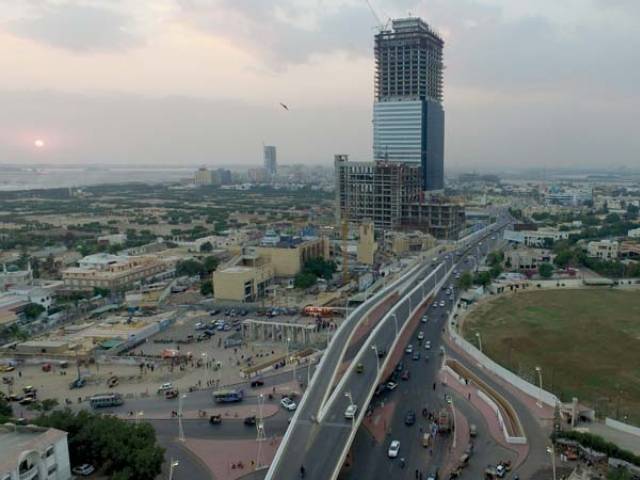
"Consumer Price Index (CPI), on year-on-year basis, in federal and provincial capitals of Pakistan remained lower than overall inflation during June 2016 except Karachi," said the Statistics and Data Warehouse Department of the SBP.
The metropolis witnessed 4.7 per cent inflation in June, a slight change from 4.6 per cent CPI in the corresponding month last year, significantly surpassing other cities including Islamabad.
Predicting trend: Consumers expect relatively high inflation, says SBP survey
Interestingly, the federal capital, which is usually dubbed as the most expensive city in the country, saw significant drop in CPI as 2.5 per cent was recorded compared to 4.6 per cent during the same period last year.
Lahore and Peshawar also witnessed significant reduction in inflation. Lahore topped the list for being the cheapest city as it recorded 0.8 per cent inflation against its 3.2 per cent rate last year. Similarly, Peshawar managed to decrease its inflation rate from 4.5 per cent to 1.2 per cent while Quetta could only record a slight depreciation from 2.6 to 2.5 per cent.
On month-on-month basis, Karachi and Islamabad registered 1.6 and 0.4 per cent increase in CPI, respectively. Lahore and Peshawar negative inflation with 0.2 and 0.3 per cent, respectively. Meanwhile, Quetta’s CPI increased by 1.7%.
Earlier on Monday, a survey conducted jointly by the SBP and Institute of Business Administration (IBA) concluded that Pakistanis expect relatively higher consumer prices in coming months.
"The relatively high inflation expectations are evident for all the commodity groups, food, energy and non-food non-energy items,” according to the brief commentary of the bi-monthly SBP-IBA Consumer Confidence Survey.
May: Independent study casts doubt on 3.2% inflation rate
In its latest monetary policy statement, the SBP said that increased economic activity in the coming months may impact inflation. It forecasts average CPI inflation in the range of 4.5 per cent to 5.5 per cent for 2016-17.
According to the SBP, any upward adjustments in gas tariff, fiscal slippages and supply disruptions pose risk to its inflation forecast.





1732084432-0/Untitled-design-(63)1732084432-0-270x192.webp)











COMMENTS (14)
Comments are moderated and generally will be posted if they are on-topic and not abusive.
For more information, please see our Comments FAQ